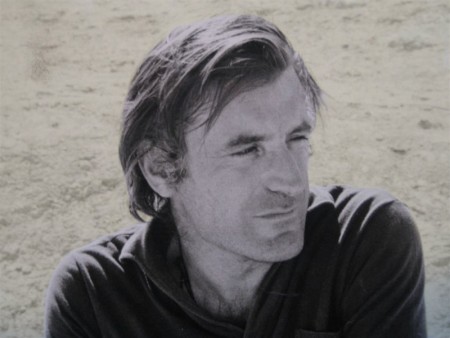
The poet Ted Hughes writes to his cousin, Vicky, upon hearing of her elopement. At the time, Hughes and his wife, Sylvia Plath, were living in North Tawton, Devon with their two children, Frieda and Nicholas. Plath had already discovered Hughes’ affair with Assia Wevill—the couple would separate in September and the months that followed would be the most creative months of Plath’s life, as well as her final months. Wevill killed herself and her four year-old daughter (fathered by Hughes) six years after Plath’s own suicide, and in the same manner—by using the gas oven in her home. Below, Hughes discusses plans to begin writing under aliases, but no record exists of the poet ever following through with this plan.
Late summer 1962
Dear Vicky,
I laughed out loud when I heard the splendid news. Congratulations. And best wishes. Marriage, of course, is a bloody monster, but it eats up many little snakes.
These secret marriages must run in the blood—you are now in the Farrar Underhand Society of Elopers, of which Ma is honorary chairwoman (don’t mention this) Albert the patron saint, Hilda the secretary, myself the white elephant, yourself the dark horse.
Where are you going to live? I want to know because of a secret life I am trying to get going. I want an address in Yorkshire from which I can pretend to send poems under one or two names other than my own. I’m going to invent a rival poet, or perhaps two, who will gradually become much better than me—then the people who resent me for one reason or another, will line up to support one of my rivals (i.e. me). Also, I shall feel freer to write all kinds of stuff without endangering my reputation—since it’s on reputation alone that I make my living, or on what my reputation attracts in the way of lucrative commissions.
All you will have to do—if you’re willing at all—is, when the poems are returned to your address from the Magazines, stuff them into other envelopes addressed to other Magazines, & repost them. I’ll supply you with all the addressed enveloped. You send the cheques to me. Would you do it?
The first name will be John Major—ancestor of Pa’s.
Don’t on your life tell anybody about this. Nobody but yourself & Sylvia will know. Make this your first secret from your spouse too, if you can. Since you’re probably the best secret-keeper in existence, I don’t hesitate to let you in on it.
What’s your new name?
Bring him down as soon as you can. We’ve a great apple crop this year, so if you can come in 3rd week September, or 2nd, you can fill up the back of the car.
Love to you Vic, & much happiness
Ted
From Letters of Ted Hughes, Edited by Christopher Reid. New York: Faber and Faber, 2007. pp. 206-207.
FURTHER READING
Listen to a 1961 BBC interview with Ted Hughes and Sylvia Plath, in which they talk about how married life affected their poetry.
Read the famous bee poems that Plath began in the weeks following her separation from Hughes—ostensibly inspired by the beekeeping hobby that he had begun in mid-1962—and peruse a compilation of commentary on the poems.
At the New York Review of Books, read about the decision to posthumously publish Ted Hughes’ last poem for Sylvia Plath, “Last Letter.”


